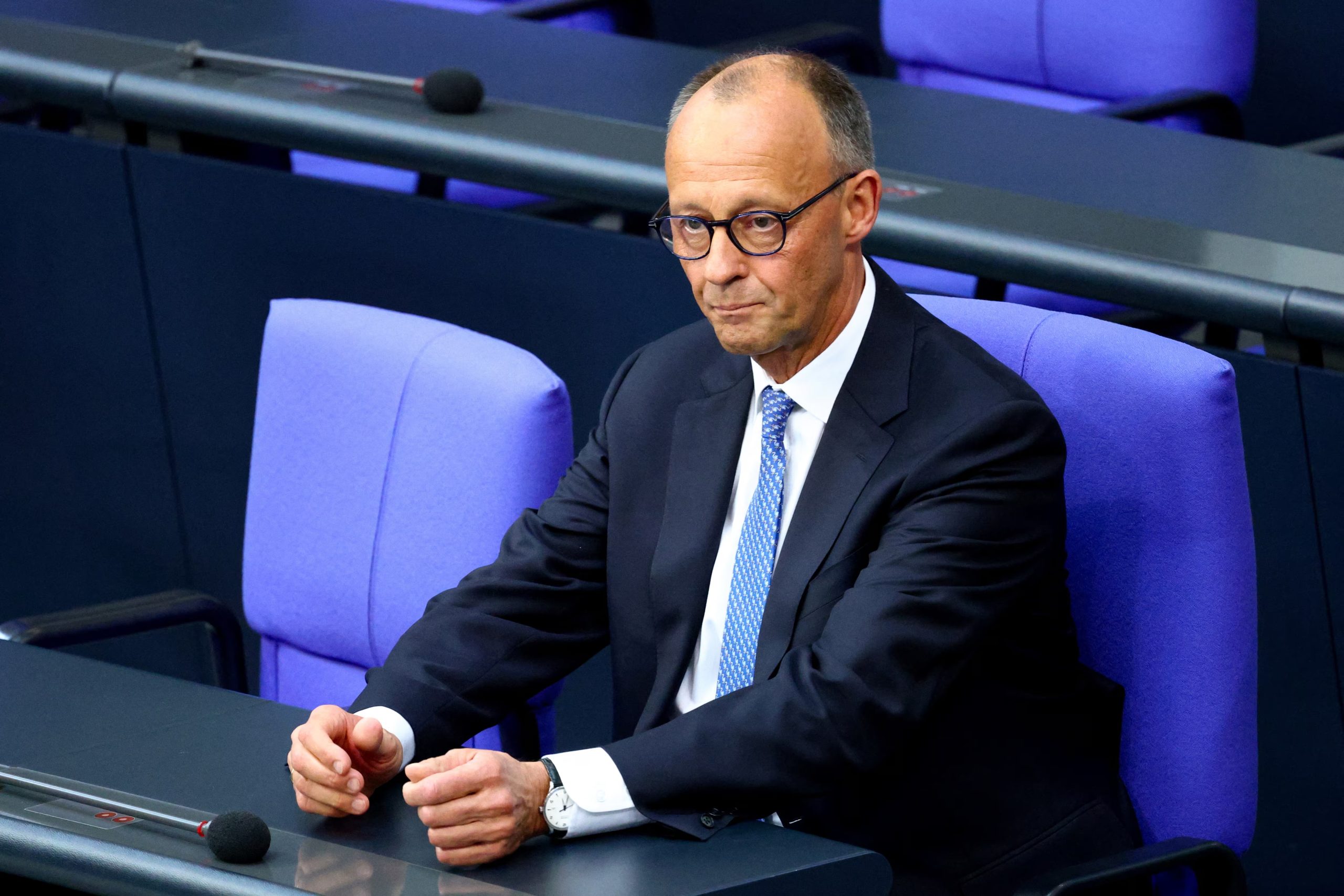During the G7 summit held in Canada, on Monday, June 16, 2025, German Chancellor Friedrich Merz made clear his unwavering support for Israel’s recent military actions against Iran.
In a series of interviews given on the sidelines of the summit, Merz emphasized the broader global implications of Israel’s campaign, framing it not only as a defense of Israeli sovereignty but as a crucial stand against a shared threat.
In a conversation with the German public broadcaster ZDF, Merz stated that Israel’s recent strikes on Iran should be seen as serving the interests of the international community, not just Israel alone.
“This is the difficult and dangerous task that Israel is undertaking on behalf of all of us,” Merz remarked.
He went on to say that the regime in Tehran, often referred to in the West as the “mullah regime,” has long been responsible for spreading violence and instability around the globe.
“We too are victims of this regime’s actions,” he continued.
“It is a government that has consistently brought suffering and devastation, not just to its own people, but far beyond its borders.”
The Chancellor’s comments reflect a growing sentiment among some Western leaders who view Iran’s influence and military reach, particularly through proxy groups and weapons programs, as destabilizing.
According to Merz, Israel’s military response is not only justifiable but necessary in curbing Iran’s capacity to project power in the region and beyond.
Speaking separately to the German news outlet Welt, Merz shared his assessment of Iran’s current state following the Israeli operations.
He noted that the government in Tehran has taken a significant blow and is now much weaker than it was before the strikes.
“The Iranian leadership has been dealt a serious setback in recent days,” he explained.
“The regime appears to be substantially weakened and may struggle to regain its former strength.
“This introduces a great deal of uncertainty regarding the country’s future direction.”
While acknowledging this fragility, Merz stopped short of predicting the eventual collapse of the Iranian regime.
He indicated that further developments would need to be monitored closely over time, suggesting that the geopolitical landscape in the Middle East could shift significantly in the weeks and months ahead.
Despite the heightened tensions and the use of military force, Merz reaffirmed Europe’s commitment to a diplomatic path forward, should the circumstances allow for it.
He stressed that the offer from key European powers to act as mediators in potential peace negotiations still stands.
“If a new situation emerges in which dialogue becomes possible once again, Germany, along with France and the United Kingdom, remains ready to provide diplomatic support,” Merz said.
He pointed out that this willingness to facilitate discussions was already in place prior to the recent escalation, and has not changed.
This statement underscores the European Union’s long-standing policy of engaging with Iran through diplomatic channels, particularly around issues like nuclear development and regional security.
Even as military actions unfold, European leaders, including Merz, appear to be leaving the door open for a return to negotiations, assuming conditions become favorable.
Chancellor Merz’s remarks represent one of the clearest endorsements of Israel’s recent actions among G7 leaders.
It also supposedly indicate a shift in Germany’s traditionally cautious stance on Middle East conflicts.
His language was direct and forceful, reflecting both solidarity with Israel and a broader condemnation of the Iranian regime’s role in global unrest.
In conclusion, Merz’s public support signals a firm alignment with Israel at a critical juncture, while still expressing hope for future diplomacy.
His comments illustrate the balance Western leaders are trying to strike between standing against perceived aggression and keeping diplomatic channels open.
As the situation in the region remains volatile, Merz’s position may serve as a significant indicator of how Europe might respond to further developments in the conflict between Israel and Iran.



